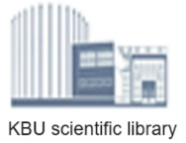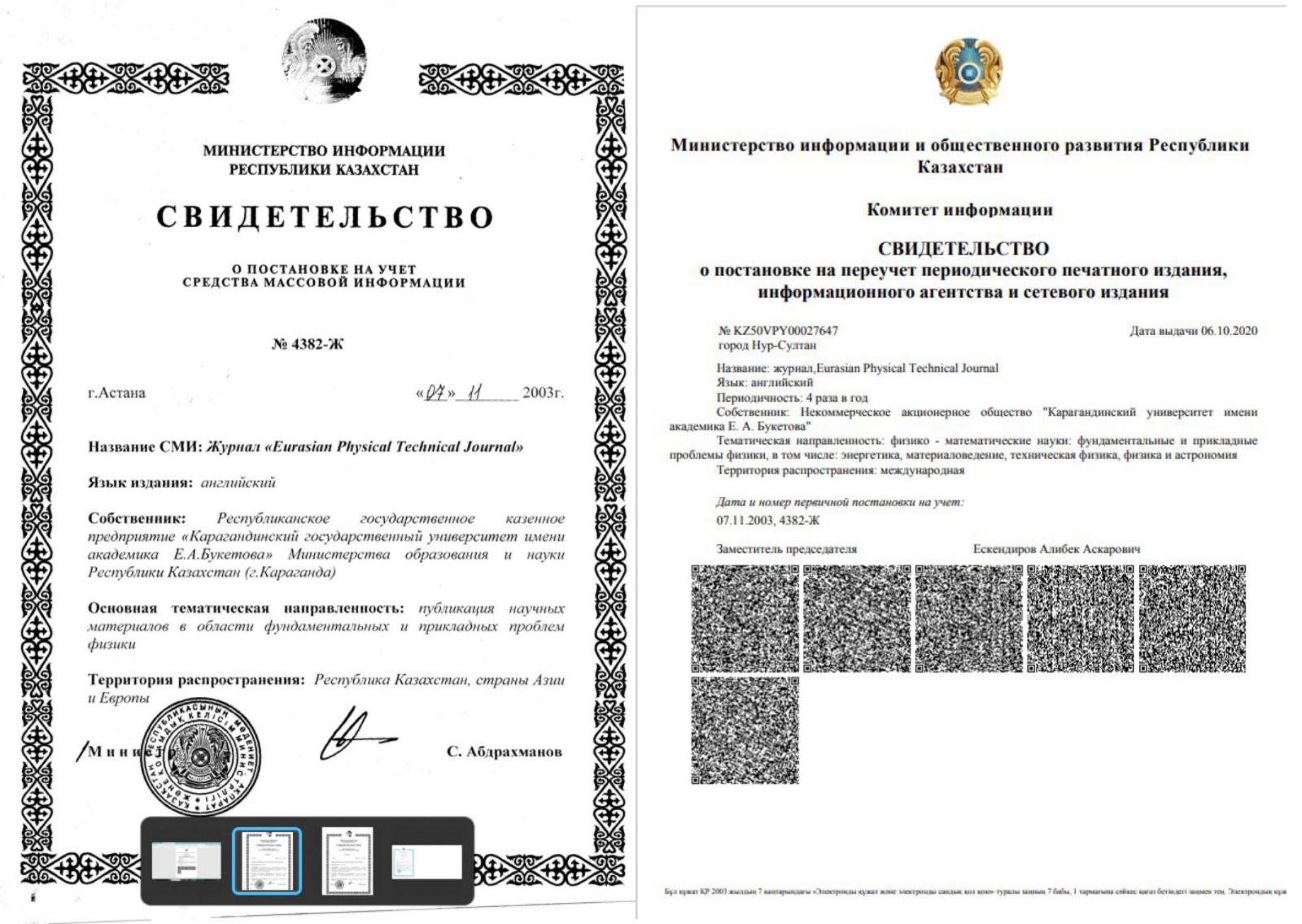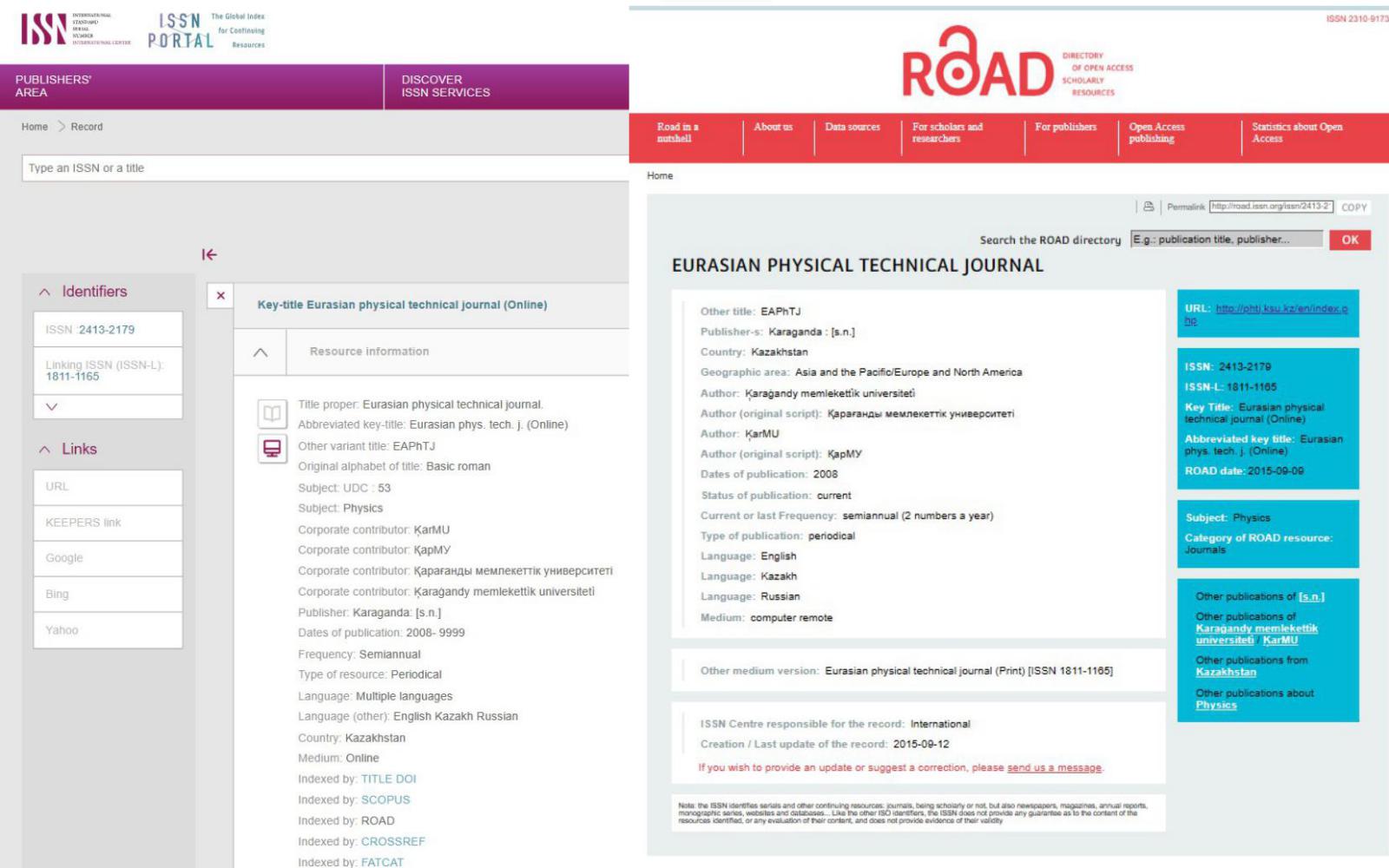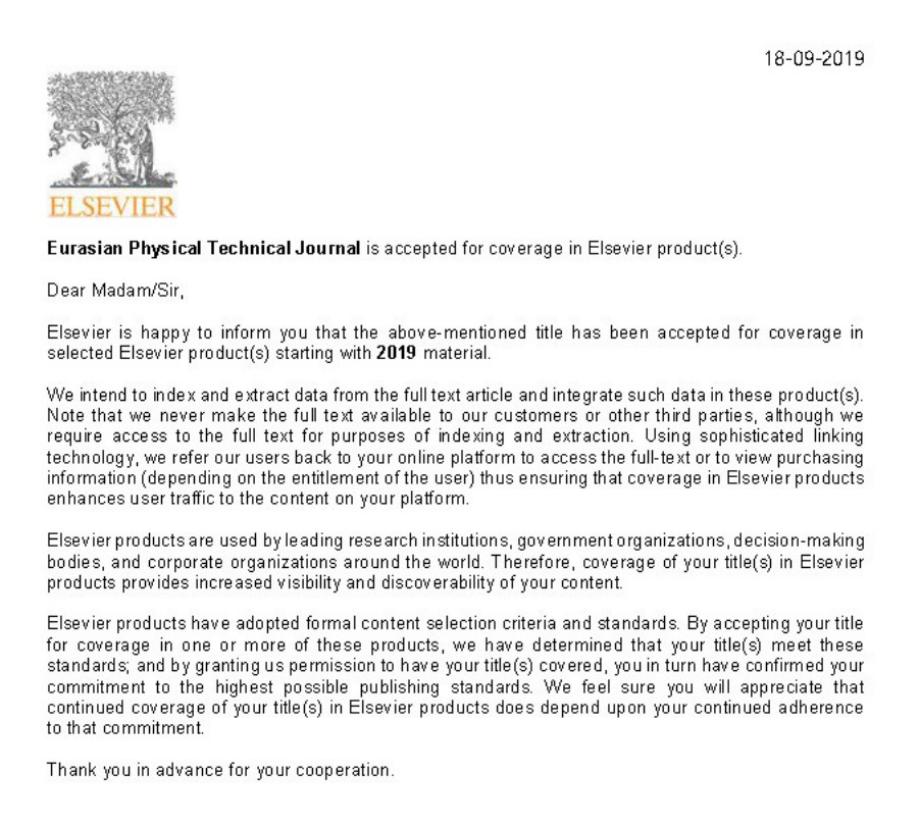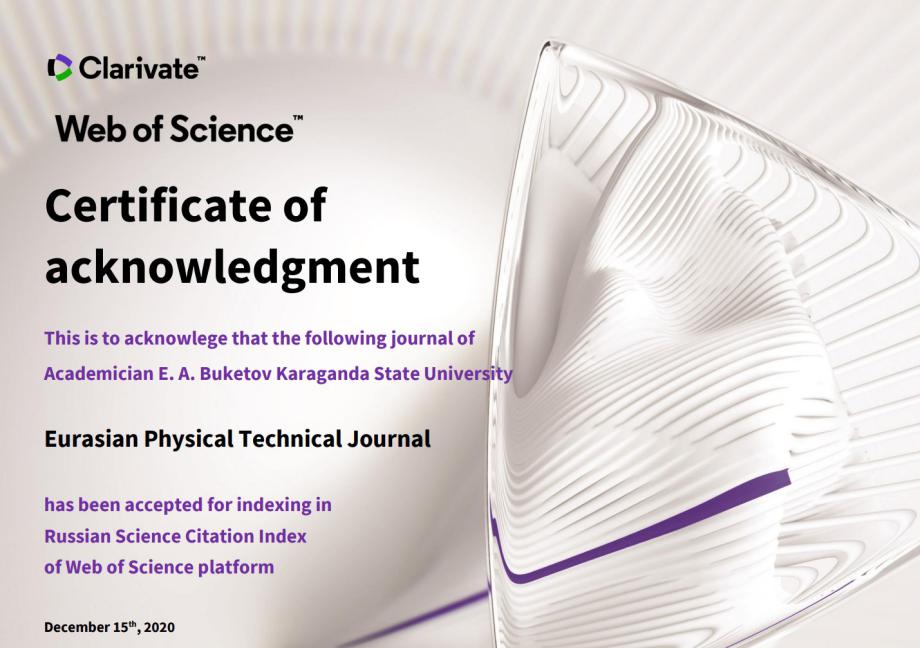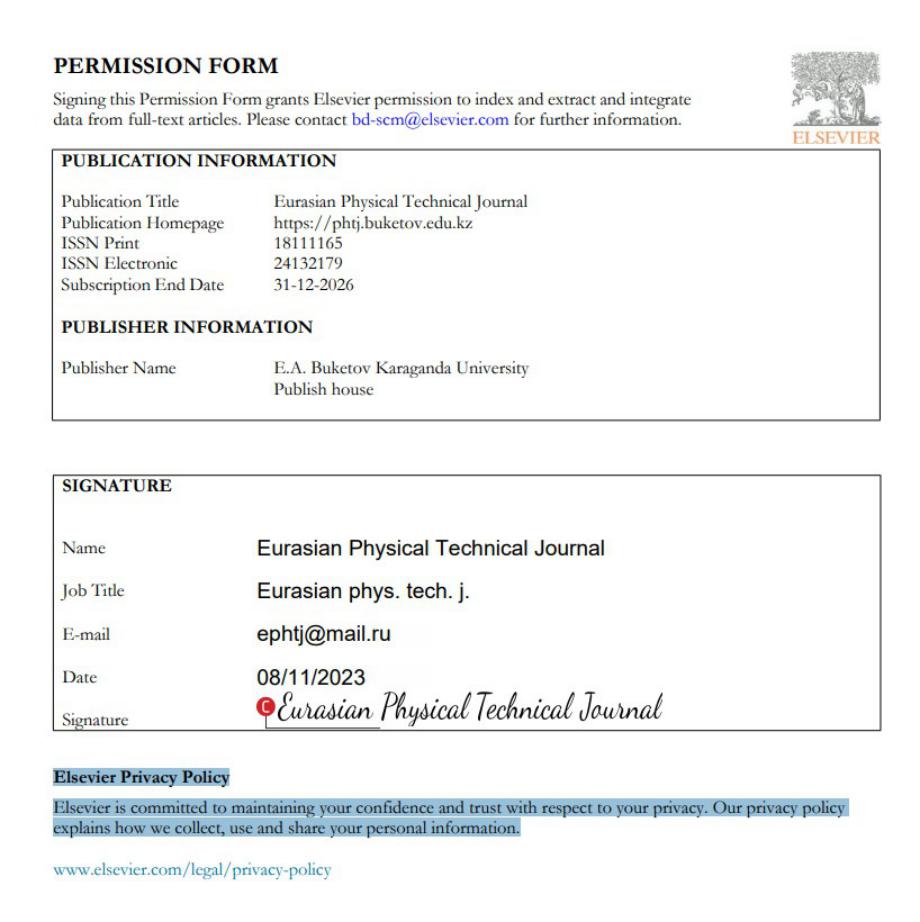"TRIBOLOGICAL CONTACT IN MATERIALS SYSTEMS ""CuCrNiZrTi - M500"", ""CuCrNiZrTi - 5140H"", ""CuCrNiZrTi - 3310H"""
DOI:
https://doi.org/10.31489/2022No1/78-89Keywords:
system of materials, coefficient of friction, piezo coefficient, shear, tangential strength, lubrication formationAbstract
"The limited information on the manifestation of the parameters of the molecular component of friction - the shear strength of the adhesive bond τ0 and the piezoelectric coefficient β of the molecular component for each specific study predetermines the use of purposeful determination of parameters by modeling shear on small-sized samples in order to increase the objectivity and accuracy of the result assessment. The article poses the task of conducting definitive tribotechnical tests of the high-entropy alloy to assess its adaptability to loading and lubrication conditions during contact with steel, cast iron and to establish the nature of the manifestation of the parameters of adhesion properties by modeling shear on small samples. It was found that under conditions of drop lubrication, the surfaces of the samples of the studied materials appear to be compatible and are satisfactorily run-in. In this case, the parameters of high-speed and force loading determine the manifestation of boundary lubrication. The time reaching the steady-state friction mode is practically the same for all systems, and is observed after 7.5 minutes. The obtained graphic patterns and parameters of their mathematical approximation made it possible to determine the nature of the change in the adhesive properties of a high-entropy alloy with a change in shear rates. "
References
"1 Kubich V.I., Cherneta O.G., Yurov V.M. Potential difference of metal machine parts methodology for determining the parameters of adhesional properties of materials on the SMC-2 friction machine. Eurasian Physical Technical Journal, 2019, Vol.16, No. 2(32), pp. 78-82.
Yeh J.W., Chen Y.L., Lin S.J. High-entropy alloys – a new era of exploitation. Materials Science Forum, 2007, Vol. 560, pp. 1-9.
Azarenkov N.A., Sobol O.V., Beresnev V.M., et al. Vacuum-plasma coatings based on multi-element nitrides. Metallofiz. Noveishie Tekhnol. 2013, Vol. 35, No. 8, pp. 1061-1084.
Firstov S.A., Gorban V.F., Krapivka N.A., Pechkovsky E.P. A new class of materials - highly entropic alloys and coatings. Vestnik TSU, 2013, Vol.18, No. 4, pp. 1938-1940.
Firstov S.A., Gorban V.F., Andreev A.O., Krapivka N.A. Superhard coatings of highly entropic alloys. Science and Innovation, 2013, Vol. 9, No. 5, pp. 32 – 39.
Pogrebnyak A.D., Bagdasaryan A.A., Yakushchenko I.I., et al. The structure and properties of highly entropic alloys and nitride coatings based on them. Uspekhi Khimii, 2014, Vol. 83, No. 11, pp. 1027-1061. [in Russian]
Maksimchuk I.N., Tkachenko V.G., Vovchok A.S., et al. The decay kinetics and thermal stabilization of the cast alloy system Mg-Al-Ca-Mn-Ti. Metallofiz. Noveishie Tekhnol. 2014, Vol. 36, No. 1, pp. 1-15.
Firstov S.A., Gorban V.F., Krapivka N.A., et al. The relationship between the ratio of the σ phase and the fcc phase with the electron concentration of cast two-phase high-entropy alloys. Composites and Nanostructures, 2015, Vol. 7, No. 2, pp. 72-84.
Shaginyan L.R., Gorban V.F., Krapivka N.A., Firstov S.A., Kopylov I.F. Properties of coatings of the high-entropy Al–Cr–Fe–Co–Ni–Cu–V alloy obtained by magnetron sputtering. Superhard Materials, 2016, No.1, pp. 33-44.
Firstov S.A., Gorban V.F., Krapivka N.A., Danilenko N.I., Kopylov V.I. The effect of plastic deformation on the phase composition and properties of high-entropy alloys. Міжвузівський збірник ""Наукові Notes"", Lutsk, 2016, No. 54, pp. 326-338. [in Ukrainian]
Gorban V.F., Krapivka N.A., Firstov S.A. High entropy alloys - electron concentration - phase composition - lattice parameter – properties. Physics of Metals and Metallurgy, 2017, Vol. 118, No. 10, pp.1017-1029.
Firstov G., Koval Y., Timoshevskii A., Yablonovskii S., Van Humbeeck J. Chemical bonding and crystal structure of Zr-based intermetallic high-temperature shape memory alloys. Chem. Met. Alloys, 2013, Vol. 6, pp. 205-208.
Kosorukova T., Firstov G., Koval Y., et al. Structural phase transformations and shape memory effect in ZrCu along with Ni and Hf additions. MATEC Web of Conferences, 2015, Vol. 33, pp. 06005.
Lyakisheva N.P. (editor). State diagrams of binary metal systems. Engineering, 1996 – 2000, 832 p.
Pushin V.G., et al. Baroelastic effects of shape memory in titanium nickelide alloys subjected to plastic deformation under high pressure. Journal of Technical Physics, 2012, Vol. 82, No. 8, pp. 67-75.
Petrov A.A. Functional properties of titanium nickelide under thermomechanical effects characteristic of active devices. The dissertation of the candidate of physical and mathematical sciences, St. Petersburg, 2004, 114 p.
Boguslaev V.O., Greshta V.L., Kubich V.I., et al. The inflow of heat-resistant gorges on the third tribotechnical and physical and mechanical authorities. Science visitor of the National Guard University. NTU ""DP"", 2020, pp. 41 – 47."




